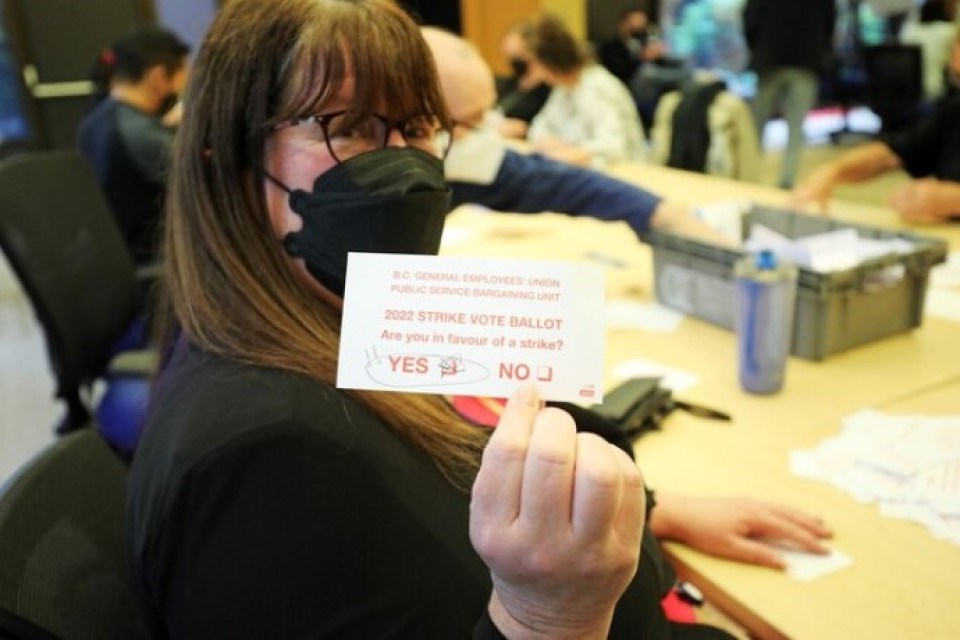The union representing B.C. government workers could serve 72-hour strike notice on Friday, according to a source familiar with negotiations.
That would mean either job action early next week or a return to the bargaining table with the NDP government.
On Wednesday, Danielle Marchand, press secretary for BC General Employees’ Union (BCGEU) president Stephanie Smith, neither confirmed nor denied that strike notice was in the works for the end of this week. She said Smith was on vacation for a couple of days and expected back on Friday.
“We just have nothing to say until we have something to say,” Marchand said.
In June, BCGEU announced its workers voted 95% in favour of striking for a new contract. Turnout was 80% for the May 16-June 22 poll. Talks broke down more than a month ago.
The union, which represents 33,000 workers, rejected a nearly 11% increase over three years plus up to $2,500 per member signing bonus offered by the government. Its key demand is for a cost of living adjustment clause to keep up with inflation.
When talks began in February, inflation was 5.7%. It hit a 40-year high of 8.1% in May.
Nearly a month ago, on July 15, president Stephanie Smith released a video that said BCGEU was negotiating with the government over minimum staffing levels to maintain health, safety and welfare.
Before striking, Smith said the union was considering other tactics, such as work to rule, including bans on overtime, circulating petitions at the workplace, holding lunchtime information lines, refusing hazardous work and any tasks that fall outside of classification duties.
The union faces a deadline of Sept. 20 to take job action.
However, in a July 28 bargaining update, the union said it was being prevented from a legal strike position because of government’s insistence on high essential service levels. That prompted a complaint to the Labour Relations Board.
Deputy Minister Bobbi Sadler, the head of the public service, did not respond for comment.
BCGEU is a fraction of the 400,000 public sector workers whose contracts have expired or will expire this year. The outcome of the BCGEU dispute is expected to influence all other contracts.
“An increase of 1% in total compensation for all B.C. public sector employees is estimated to cost $386 million,” says a government website about public sector bargaining. "For union and other negotiated agreements, a 1% increase would cost nearly $311 million.”


